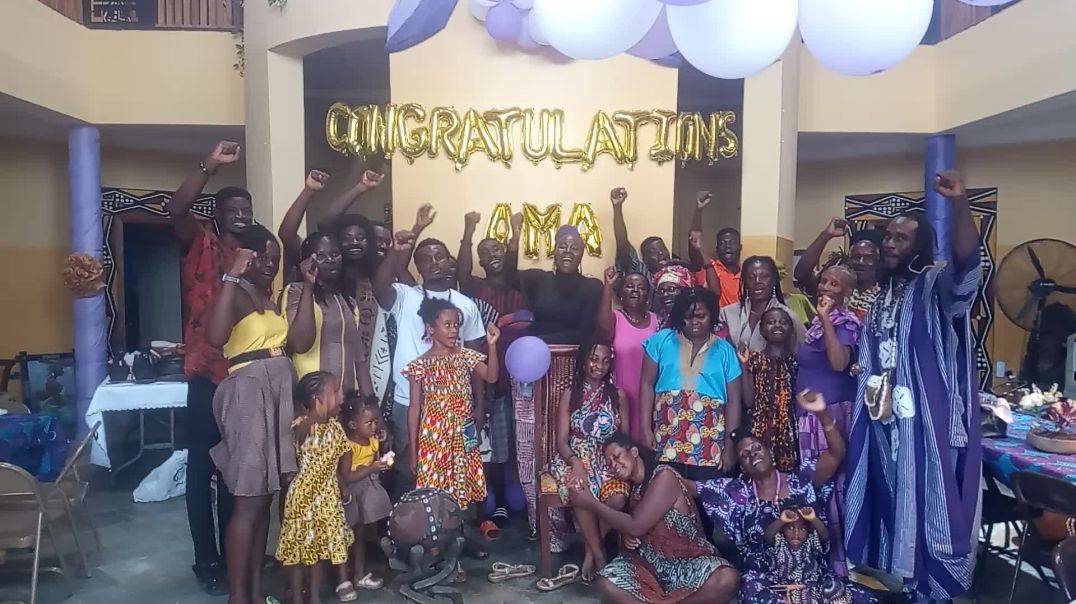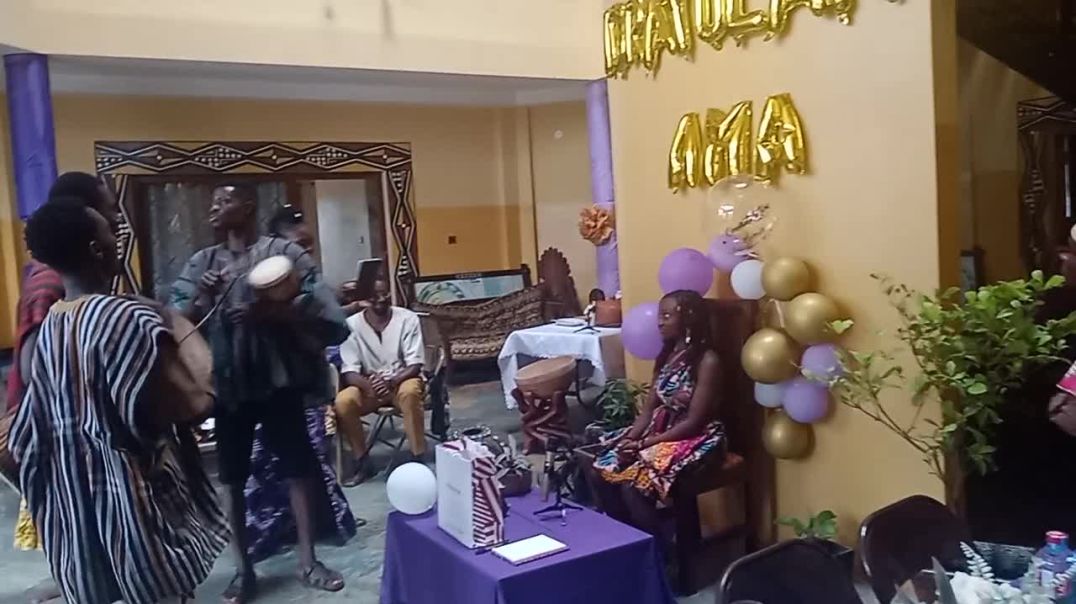General Videos
A MOTHER'S DAY FAVORITE by Yoruba for Kidz. ( @yorubaforkidz).
Learning Yoruba is so much more fun with Yoruba For Kidz!
Become a Member on our Website, www.yorubaforkidz.com to get other videos and other fun Yoruba Resources, like Games, Lessons, printable, worksheets, Recipes , Singalongs and much more! See you there!
Iya Ni Wura- Yoruba Edition© copyright 2018-2021 Oodles of Fun Kids Co. All Right Reserved.
Akosua Kambon gymnastics clip 2
Akosua at gymnastics clip
Ama's graduation part 2
‼️WATCH THE FULL UNCENSORED INTERVIEW WITH 'DR. KIMONI YAW AJANI' NOW‼️
https://ineverknewtv.com/premium/
👕 Get Your 'EDUCATE, INFORM, INSPIRE' T-SHirt NOW:
https://ineverknewtv.com/shop-2/
Watch more reasonings from Dr. Kimoni Yaw Ajan:
Pt.1 https://youtu.be/-Ae1-D2j5O8
Pt.2 https://youtu.be/9hwwKSs1l2s
Pt.3 https://youtu.be/6cJc7AP54fE
Pt.4 https://youtu.be/5crv4gZBbfk
Dr. Kimoni Yaw Ajani is a Haitian scholar focused on African history and the Haitian Revolution.
In Part 5 of this informative reasoning, Dr. Ajani challenges the myth that ancient African civilizations were purely peaceful. He explores how violence was sometimes used to maintain power and why a more realistic approach to African history is necessary for true understanding.
🎧 Catch 'I NEVER KNEW RADIO
for Roots, Rock, Reggae Music!
Hosted by Jr a.k.a 'The Bald Head' of 'I Never Knew TV'
📅 Sundays: 9 - 11 AM EST
📅 Wednesdays: 8 - 10 AM EST
📅 Thursdays: 10 AM - Noon EST
Listen live: https://wloy.org/listen/
#ineverknewtv
Ama's graduation celebration part 1
Midrand, South Africa – It wasn't just another day at Nizamiye Primary and High School. The school grounds became a vibrant hub of innovation, ideas, and hope. Over 185 projects from Grade 4 to Grade 10 learners lit up the Nizamiye Science Expo 2025, with one purpose: to solve real-world problems faced by South Africa and the continent.
Each corridor echoed passionately—from makeshift DNA labs to eco-brick construction demos, from human-powered energy generators to piezoelectric tiles that lit up with every footstep.
Tamil Hassan Binda showed us how extracting DNA doesn't need a lab—just household ingredients and curiosity.
Azaria and Sarah took energy to the streets (literally!) with tiles that generate power when you walk—imagine lighting up Joburg's sidewalks just by walking.
A young innovator designed a human-powered USB charger using a crank and dynamo to tackle load-shedding, proving that when Eskom goes dark, innovation shines.
A hydro-powered grid project reminded us of the untapped potential of Africa's rivers. At the same time, another team tackled heart health by analyzing how energy drinks affect the cardiovascular system and proposing natural alternatives like beetroot juice and green tea.
Another standout is eco-bricks, which are built from eggshells, plastic, and soil. They are strong, sustainable, and a brilliant solution to Africa's plastic waste crisis.
Why it matters:
This is more than a school expo. It's a vision of Africa led by its youth. These learners are not just studying science; they're applying it to transform communities, address power crises, improve public health, and rethink sustainability.
Initiatives like these spark the homegrown solutions that BRICS and Agenda 2063 champion, as the continent grapples with energy challenges, environmental threats, and youth unemployment.
Africa's future isn't waiting. It's being built—one school science expo at a time.
PROF. MANU AMPIM'S pioneering insight on Dr. Carter G. Woodson's scholarship on Africa.
Delivered on February 20, 2025 at the 26th Annual African Heritage Month Community Celebration at Contra Costa College (CCC). Sponsored by the CCC African American Staff Association.
‼️WATCH THE FULL UNCENSORED INTERVIEW WITH 'DR. TALAWA ADODO' NOW‼️
https://ineverknewtv.com/premium/
👕 Get Your 'EDUCATE, INFORM, INSPIRE' T-SHirt NOW:
https://ineverknewtv.com/shop-2/
Watch more reasonings from Dr. Okunini Talawa Adodo:
Pt.1 https://youtu.be/vO99qp65bQY
Pt.2 https://youtu.be/219dJCtA6QE
Pt.3 https://youtu.be/FpnS2bWsDEA
Pt.4 https://youtu.be/FTFEOfeNwwg
Dr. Okunini Talawa Adodo is a Jamaican Pan-Afrikanist scholar who focuses on Afrikan history, Afrocentric theory, and Afrikan language.
In Part 5 of this insightful reasoning, Dr. Okunini Talawa Adodo speaks on the importance of knowing and embracing your own language. He explores this through a powerful analysis of Jamaican Patois and Haitian Creole, shedding light on how language shapes identity, preserves culture, and resists colonial erasure.
🎧 Catch 'I NEVER KNEW RADIO
for Roots, Rock, Reggae Music!
Hosted by Jr a.k.a 'The Bald Head' of 'I Never Knew TV'
📅 Sundays: 9 - 11 AM EST
📅 Wednesdays: 8 - 10 AM EST
📅 Thursdays: 10 AM - Noon EST
Listen live: https://wloy.org/listen/
#ineverknewtv
CONFERENCE - Retrospective - History, Context and Impact of Ancestor Malcolm X










